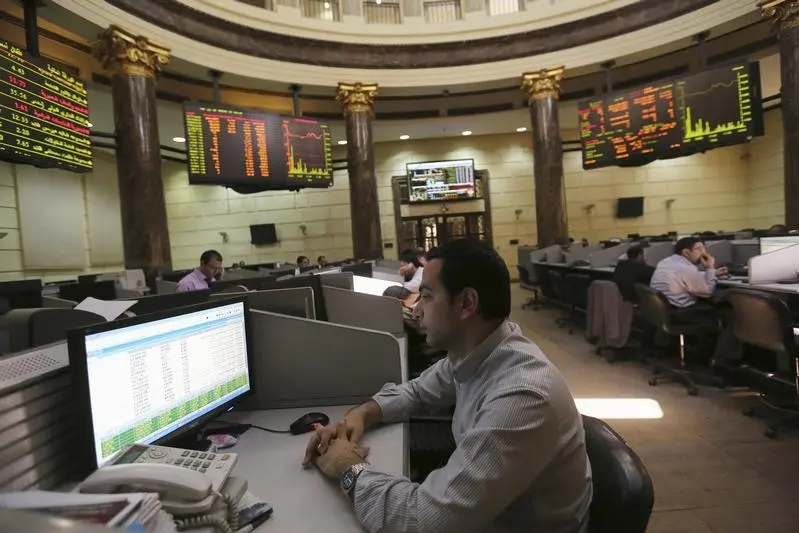PHOTO
(Adds draft budget)
CAIRO, Nov 13 (Reuters) - Egypt's $12 billion three-year IMF loan programme will be repaid in 10 years with a 4.5-year grace period, with the reforms agreed with the international lender aiming to boost growth and curb inflation, the finance ministry said on Sunday.
The International Monetary Fund on Friday approved a programme aimed at helping Egypt close its budget gap and boost economic growth by luring new foreign investment.
The finance ministry said the reforms target GDP growth of 5.5 percent and inflation of less than 10 percent by the 2018-19 fiscal year.
Egypt's economy grew 4.3 percent in the 2015-16 fiscal year and inflation was just below 14 percent in October.
Later on Sunday Egypt's finance ministry released its 2017-18 fiscal year draft budget, which targets a budget deficit of 8.5 to 9.5 percent of GDP, down from a 12.2 percent deficit for 2015-16.
Egypt's fiscal year starts in July and the budget is subject to approval and possible revision by the government, parliament, and president.
The draft budget targets economic growth of 4-5 percent and unemployment of 11-12 percent.
As part of the reforms aimed at clinching the $12 billion IMF loan, the government has introduced a raft of economic measures, including a Value Added Tax and fuel price hikes, but these have meant greater hardship for a population already facing high prices and sluggish growth.
Minister of International Cooperation Sahar Nasr told Reuters that Egypt is seeking new financing to expand projects aimed at creating jobs and shielding its poorest people from austerity measures.
Egypt has been negotiating billions of dollars in aid from various lenders to help revive its economy, battered by political and economic upheaval since the 2011 uprising.
Having won IMF board approval for its programme, Egypt is expected to receive an initial loan tranche of $2.75 billion.
The remainder of the $12 billion loan will be phased in over the next three years, subject to five reviews on required reforms.
(Reporting by Ehab Farouk, additional reporting by Omar Fahmy, Writing by Lin Noueihed, Editing by Eric Knecht and Andrew Bolton) ((lin.noueihed@thomsonreuters.com; +202 2 394 8039; Reuters Messaging: lin.noueihed.thomsonreuters.com@reuters.net))
CAIRO, Nov 13 (Reuters) - Egypt's $12 billion three-year IMF loan programme will be repaid in 10 years with a 4.5-year grace period, with the reforms agreed with the international lender aiming to boost growth and curb inflation, the finance ministry said on Sunday.
The International Monetary Fund on Friday approved a programme aimed at helping Egypt close its budget gap and boost economic growth by luring new foreign investment.
The finance ministry said the reforms target GDP growth of 5.5 percent and inflation of less than 10 percent by the 2018-19 fiscal year.
Egypt's economy grew 4.3 percent in the 2015-16 fiscal year and inflation was just below 14 percent in October.
Later on Sunday Egypt's finance ministry released its 2017-18 fiscal year draft budget, which targets a budget deficit of 8.5 to 9.5 percent of GDP, down from a 12.2 percent deficit for 2015-16.
Egypt's fiscal year starts in July and the budget is subject to approval and possible revision by the government, parliament, and president.
The draft budget targets economic growth of 4-5 percent and unemployment of 11-12 percent.
As part of the reforms aimed at clinching the $12 billion IMF loan, the government has introduced a raft of economic measures, including a Value Added Tax and fuel price hikes, but these have meant greater hardship for a population already facing high prices and sluggish growth.
Minister of International Cooperation Sahar Nasr told Reuters that Egypt is seeking new financing to expand projects aimed at creating jobs and shielding its poorest people from austerity measures.
Egypt has been negotiating billions of dollars in aid from various lenders to help revive its economy, battered by political and economic upheaval since the 2011 uprising.
Having won IMF board approval for its programme, Egypt is expected to receive an initial loan tranche of $2.75 billion.
The remainder of the $12 billion loan will be phased in over the next three years, subject to five reviews on required reforms.
(Reporting by Ehab Farouk, additional reporting by Omar Fahmy, Writing by Lin Noueihed, Editing by Eric Knecht and Andrew Bolton) ((lin.noueihed@thomsonreuters.com; +202 2 394 8039; Reuters Messaging: lin.noueihed.thomsonreuters.com@reuters.net))





















